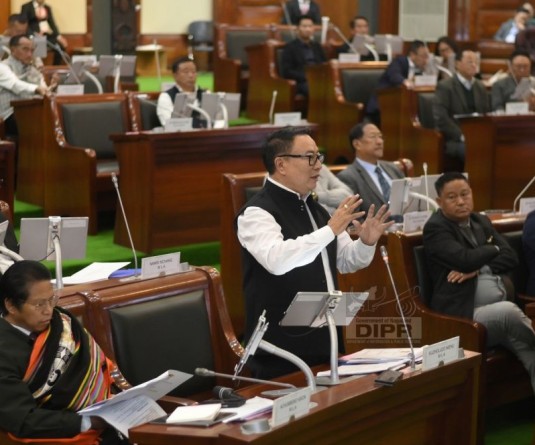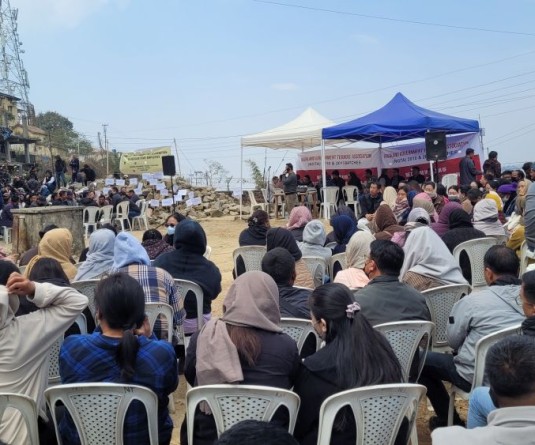
People with disabilities in Nagaland continue to live in isolation: Diethono
Our Correspondent
Kohima | January 25
Diethono Nakhro, State Icon (PwD) today said that disability, people living with disability and disability issues are still very poorly understood in our society – not only with the general public but even with the government and the government machinery. This, she claimed, meant that disabled people are being denied their rights in all spheres of life.
Speaking at the 7th National Voters’ Day here, she said Disability Act has been in existence since 1995, which was repealed on December 16 last year after a more robust Rights of Persons with Disabilities bill was passed in the parliament, which will come into force soon.
“However, despite the old laws being in place for over 20 years - “to promote, protect and ensure the full and equal enjoyment of all human rights and fundamental freedoms by all persons with disabilities, and to promote respect for their inherent dignity” – the truth, plain and simple, is that people with disabilities in Nagaland continue to live in isolation being denied even basic rights such as accessibility,” she insisted.
Though the law has said for over 20 years that all public buildings and public spaces must be made accessible so that people with various kinds of disabilities can participate in the life of the society as equal citizens, it has not made any impact here as it has not been implemented, Nakhro stated.
We are not equal citizens in Nagaland, in spite of the law saying that we are, she maintained and added that people with disabilities represent the most excluded of all groups in Naga society. They are completely missing from the development landscape, she argued.
Majority of children with disabilities cannot attend school while most adults with disabilities are unable to participate in community activities such as meetings, community programmes and functions, festivals and religious services, she observed. They have no access to the labour market and encounter serious obstacles and discrimination in seeking employment or income-generating activities, she added.
This exclusion extends to the election process, Nakhro further observed.
The UN Convention on Rights of Persons with Disability, of which India is a signatory, lays down that States Parties shall ensure that persons with disabilities can effectively and fully participate in political and public life on an equal basis with others, directly or through freely chosen representatives, including the right and opportunity for persons with disabilities to vote and be elected.
“I think it would be fair to say that over the years through various election cycles in the State, little or no attempt has been made to ensure the right of people living with disabilities to exercise their franchise. The EC has in recent years made facilities for Persons with Disabilities in the election process a priority and we are happy and truly encouraged to note that the Chief Electoral Officer and his team has also made participation of persons with disability an important part of the process in the State,” she said.
Pointing out that voters with disabilities have been an invisible minority to the Election Department, political parties and the public in general for a very long time, Nakhro expressed the hope that it will change now. If we want to take voting rights seriously and ensure this right for every single person, we cannot ignore voters with disabilities, she maintained. Nakhro noted that if the Election machinery takes inclusion of people with disabilities seriously, it will have the parallel effect of creating more awareness among the general public which in turn will go a long way in helping improve the quality of life of disabled people in the State.
“We look forward to more consultations that will ensure the full participation of people with disabilities in the entire election process in the state,” she said while also calling for developing an election monitoring method in order to collect data, surveys and studies to understand the involvement of persons with disabilities across the state.
“Disability Rights is Human Rights – and it is the right of every single person with disability to cast his or her vote for the candidate of his or her choice!” she asserted.






